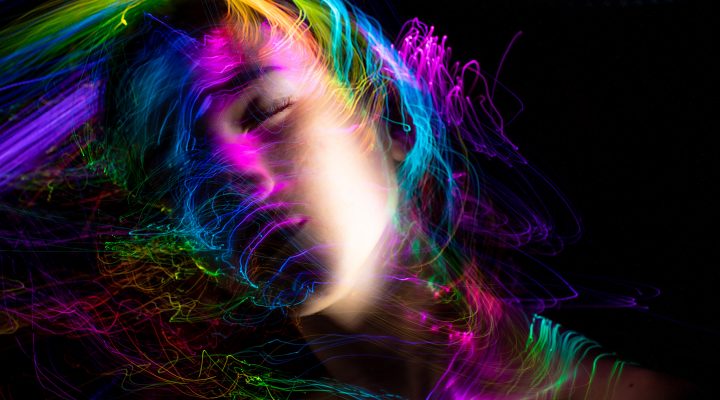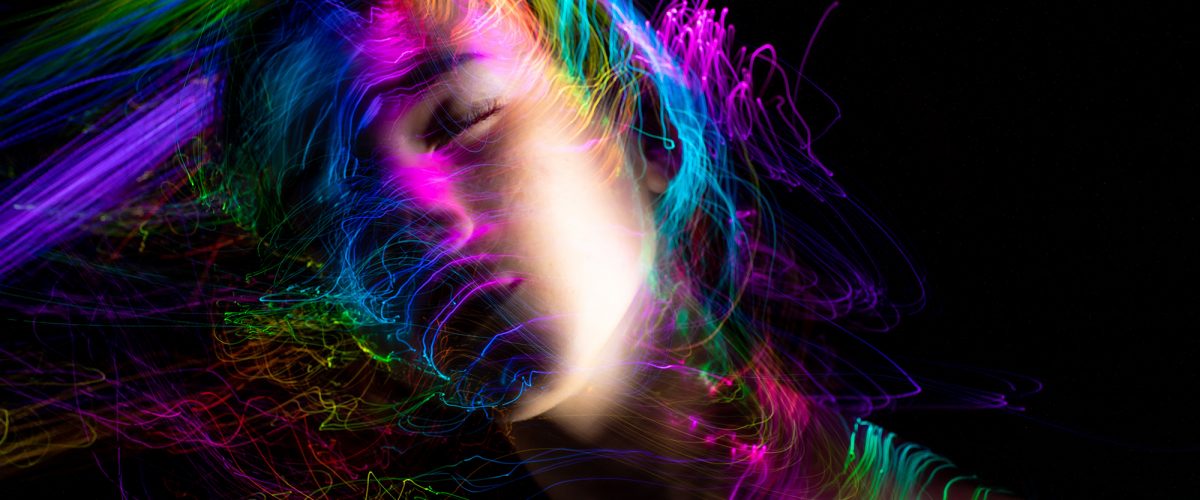At the end of my first year of divinity school in 2021, I took advantage of recent decriminalization laws and ingested between four and five grams of the Psilocybe cubensis, a naturally occurring psychedelic mushroom. For six hours, I clutched my small icon of Christ and experienced the overwhelming sensory and cognitive changes known as a “psychedelic trip.”
While the Christian art on my walls pulsated with spectrums of light, I relived old memories in something like a waking-dream state. As the trip subsided, I was left with a single, overwhelming impression: I needed to be a better husband, a better Christian and a better person.
I am hardly the only twentysomething exploring psychedelics.
Understand the trend
Psychedelic substances are a category of mind-altering drugs including LSD, magic mushrooms and DMT increasingly used today. Due to decriminalization efforts across America and the world, popular documentaries, and promising research about their therapeutic capabilities, these drugs have become increasingly popular.
This is especially true among young people. More than 8% of young adults reported using hallucinogenic drugs in 2021, almost exclusively psychedelics. In another study, about 4% of 18- to 25-year-olds reported using LSD.
In Oregon, Colorado, Jamaica, Canada, Costa Rica and Mexico, therapeutic treatment centers are being built or already exist to provide these non-addictive and low-risk substances to treat mental illness and chronic pain. Tens of thousands already visit every year.
These recreational and therapeutic experiences are frequently interpreted as spiritual occurrences. In a 2006 study using psilocybin, the active ingredient in magic mushrooms, two-thirds of subjects reported the trip was among the top five most meaningful spiritual experiences in their lives. One-third reported it was the single most important spiritual experience of their lives.
Immediately after my trip, I sought Christian resources to understand it, but I was stymied. Almost everything I came across condemned psychedelics. The rest either taught New Age theology with Christian words or did not consider psychedelics to be a serious theological question.
“I realized the Psychedelic Renaissance had arrived and churches are woefully unprepared.”
I realized the Psychedelic Renaissance had arrived and churches are woefully unprepared. As I entered my second year at Duke Divinity School, I dedicated myself to solving this problem. Of course, I wanted to know what happened to me and to tens of millions of others across the world, but I also want churches to be better educated as people in our pews and community more commonly partake in these substances.
The psychedelic experience
The most commonly used psychedelics are called “classical psychedelics.” These are drugs that affect the brain’s serotonin receptors. They are non-addictive, have practically no risk of overdose death, and can be eaten or smoked. Depending on the substance used, the trips they induce can last anywhere from 15 minutes to a full day and involve radical changes to our senses, cognition and sense of self.
For instance, a moderate dose of DMT may cause a fully immersive hallucinatory trip for only five minutes, but a high dose of LSD could create several hours of a far less intense trip.
It is difficult to generalize the elements of psychedelic trips, but personal retellings of the drug experience, often called “trip reports,” demonstrate why trips can be interpreted spiritually. The following testimony is derived from Rick Strassman’s book DMT: The Spirit Molecule:
“There was movement of color. The colors were words. I heard what the colors were saying to me … ‘God is in every cell of your body.’ … God dances in every cell of life, and that every cell of life dances with God. … I am changed. I will never be the same.”
Other trips are explicitly Christian in nature, such as this one recorded in William Richards’ book Sacred Knowledge:
“A magnificent vision of Christ standing motionless in resplendent, radiant beauty. … There was immeasurable power, love. I love him with profundity beyond description. … (There was) a most deep understanding of the meaning of God giving his Son in this suffering world. I moved into his love-suffering and felt the cost of his life.”
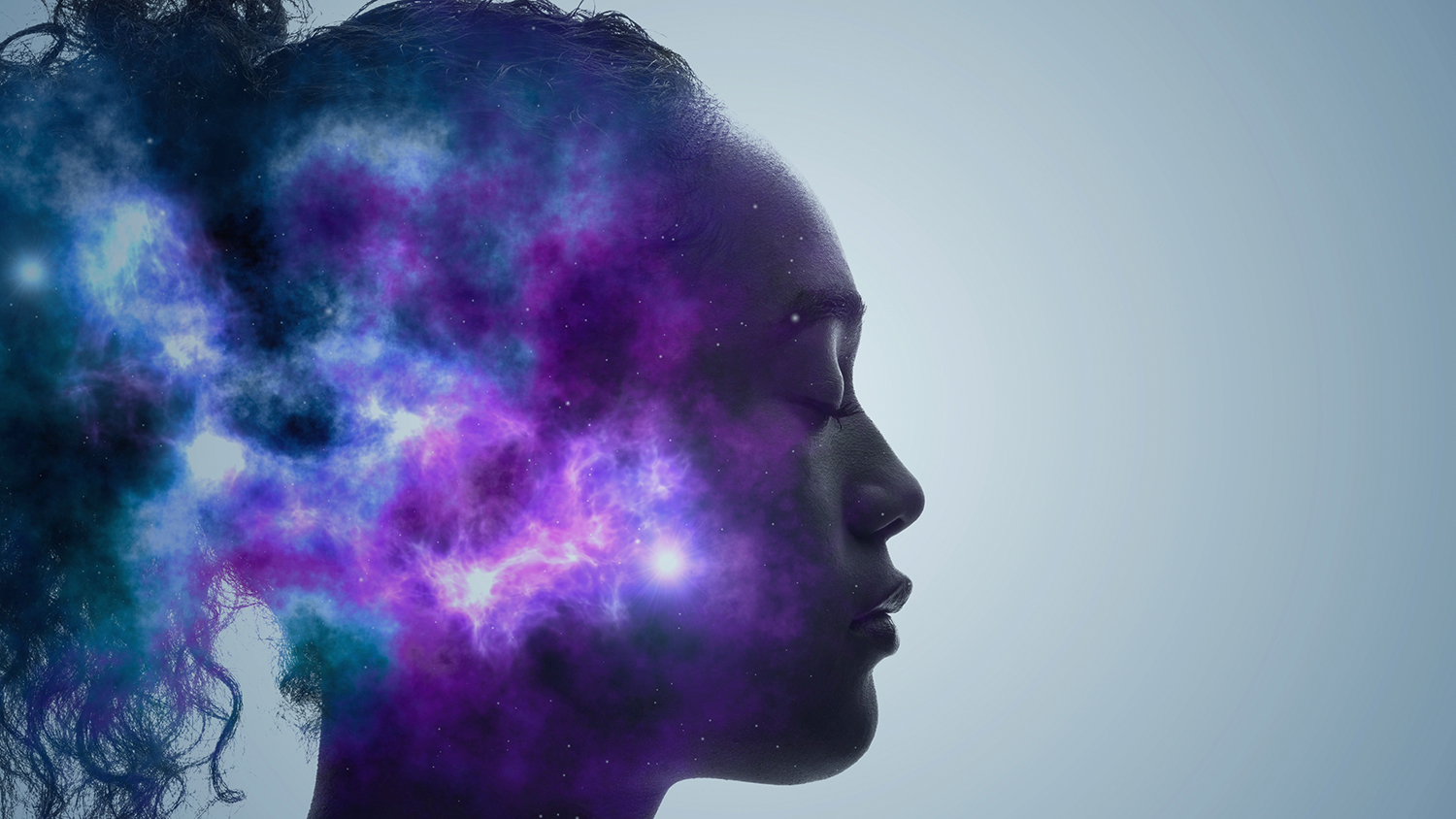
(Shutterstock)
Just as I did before beginning my research at Duke, it may be easy to dismiss these experiences as “just drugs,” mere chemically induced hallucinations. However, during my research and time talking with frequent psychedelic users or “psychonauts,” I began hearing stories that were seemingly inexplicable using purely materialistic assumptions.
I heard stories about people who experienced the same thing during trips, down to precise details, without telling each other about the experience beforehand. The comedian Shane Mauss told a humorous testimony about this phenomenon. Other first-hand trip reports included extrasensory perception that proved accurate, private secrets about friends that were later revealed to be true, and trips where spiritual beings revealed accurate theological knowledge and real-life religious texts of which the tripper had never previously heard.
Albert Hofmann, the devout Christian and Swiss chemist who discovered LSD, spoke of the pioneering find in spiritual terms. Hoffman first discovered LSD in 1938 but quickly forgot about it. Five years later, Hofmann sensed “a peculiar presentiment — the feeling that this substance could possess properties other than those established in the first investigations.”
While investigating LSD a second time and following normal laboratory safety procedures, he somehow accidentally ingested LSD and discovered its psychedelic effects. Hofmann later explicitly gave LSD agency in this story, saying “I did not choose LSD; LSD found and called me.”
Whether or not you would believe someone who told you similar stories is irrelevant. What matters is that people do believe them. They are powerful, seemingly supernatural events that drive people to seek faith and spiritual meaning in their lives.
“I have personally spoken to many whose experiences have pushed them to become religious seekers.”
I have personally spoken to many whose experiences have pushed them to become religious seekers. They are discontent with the explanations of scientism and dogmatic materialism that do not align with their powerful, persuasive psychedelic trips. They need more.
Breaking materialism’s spell
The world of the Bible and the early church was thick with otherworldly power. Demons, miracle workers, spirits, prophets, angels and phantoms roamed the land. These figures inhabited a spiritually charged landscape filled with angel-touched pools that could heal illness and cemeteries the demonically possessed called home.
In this enchanted landscape, both humans and incorporeal beings could equally affect your daily life. The night was colored with revelatory dreams, and the day had striking visions. Church services could feature miracles or the tongues of angels, for whom the women wore head coverings. Every casting of lots could reveal the will of the Lord.
This past world seems mythical compared to our sterile, scientific age. Here, everything works according to predictable, immutable laws without spiritual surprises. Demons and possession are reduced to psychological mechanisms. Miracles are just placebos. The regular nocturnal visions we call dreams are reduced to zany and inherently meaningless conversation topics. No land or place is more sacred or holy than any other. Claims about angelic visitations or the voice of God are met with suspicions of either psychosis or nefarious intent.
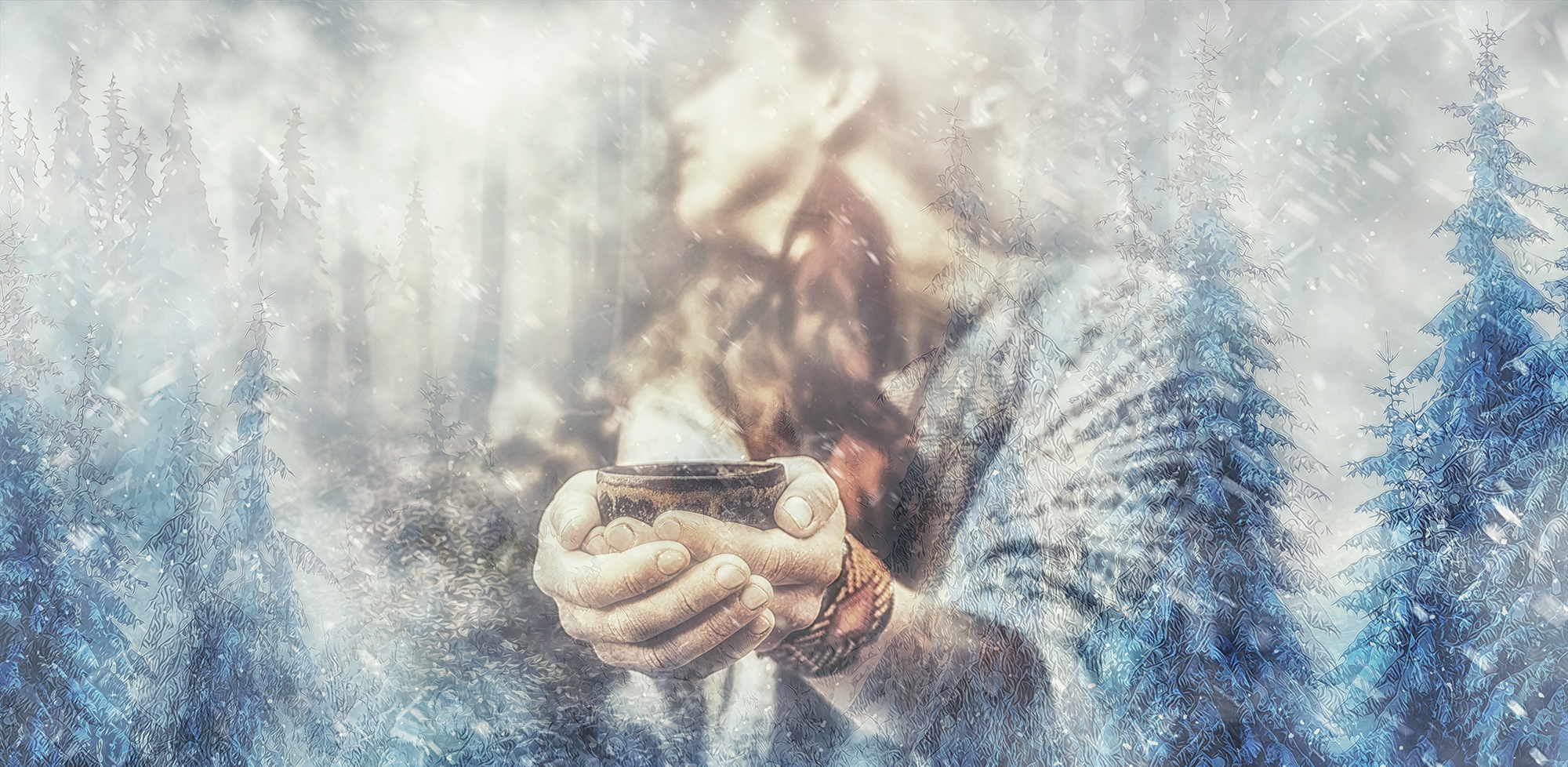
(123rf.com)
Christian theologians and philosophers like Charles Taylor have argued that this “disenchantment” is a primary cause of religion’s decline. The world of religious text and tradition, dense with its arcane knowledge and theurgic happenings, is no more. It has been replaced by a rigid, predictable world wherein God and the stories about God no longer make any sense.
The biblical world fades into the category of mythology, worthy only of curiosity. At best, it may become watered down, “demythologized” self-help that leads us toward self-actualization.
But what if it were possible to return to that enchanted world once again?
Right now, psychedelics are providing such re-enchantment for people. Visions, meaningful dreams, seemingly miraculous healing and the intervention of the spiritual realm into our daily lives can suddenly seem like a possibility once again.
“One survey from Johns Hopkins found two-thirds of respondents who were atheists before a powerful psychedelic trip no longer identified as atheists after it.”
One survey from Johns Hopkins found two-thirds of respondents who were atheists before a powerful psychedelic trip no longer identified as atheists after it. A second study from Johns Hopkins demonstrated that 30% of respondents came to believe in spiritual beings and an afterlife after psychedelic experiences.
Of course, the church should not get swept up in the hype that falsely promotes psychedelics as a panacea for personal and societal ills. However, it cannot shy away from this cultural moment due to misinformation-fueled taboos or poor theological responses, such as identifying psychedelics with the plant magic or pharmakeia condemned in the New Testament.
Since beginning this journey of research and ministry, I have talked to young people across the world who have come to saving, even orthodox, faith in Jesus Christ through their psychedelic experiences. Many others are searching, but the lack of informed Christian resources push them away from faith.
I graduated from Duke Divinity School this semester, but not before lauching Psychedelic Theology, my small Christian education ministry. I have been thrilled to share my research at Duke, at local congregations, on podcasts and in small study groups. However, this cannot and should not be work done alone. Christian clergy and lay believers must begin educating themselves today in order to properly respond to this brave new world tomorrow.
When veterans treated for PTSD with magic mushrooms, couples receiving MDMA therapy to improve their marriage and graduate students who rediscovered their faith with LSD begin sitting in our pews, will you be ready?
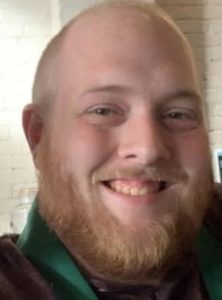
Kaleb Graves
Kaleb Graves is a CBF minister and educator living in North Carolina. He earned a master of divinity degree from Duke Divinity School in 2023 and is currently pursuing a master of arts degree in psychology.
Related articles:
What an experiment with psychedelics 60 years ago might teach us about faith today | Analysis by Kaleb Graves
‘God’s plant’ has cured kids, now the new frontier is psychedelics

